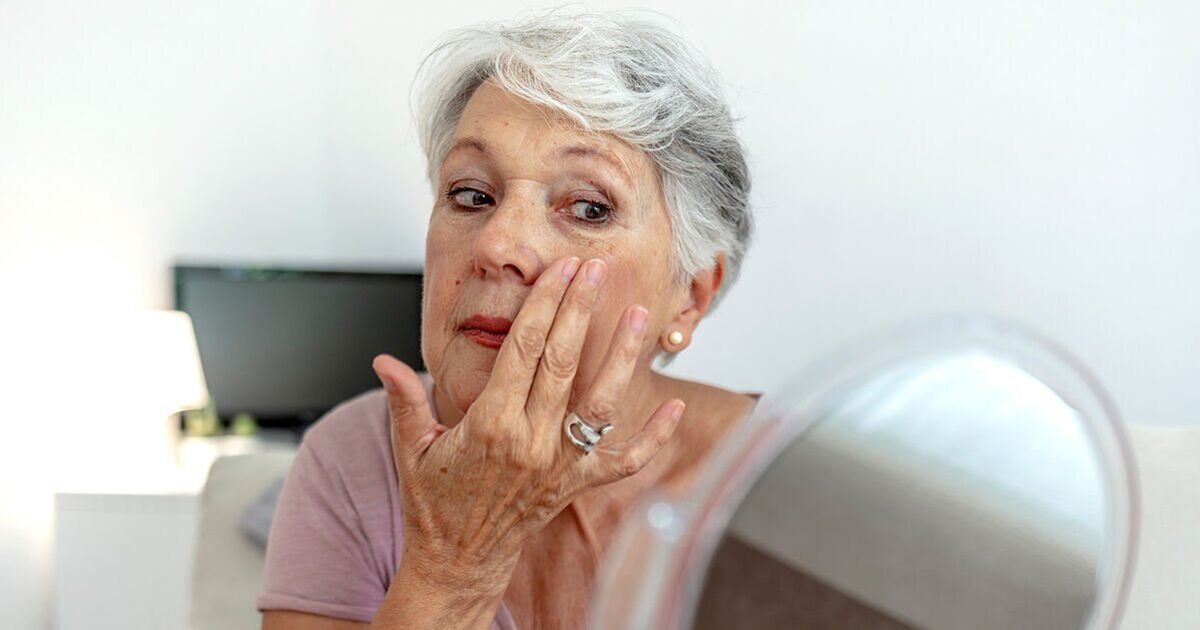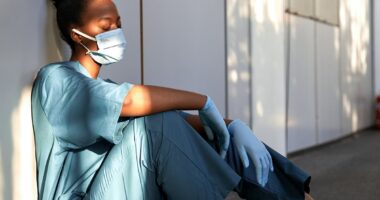The NHS has issued a warning of red flag symptoms of a potentially dangerous health condition to spot. Diabetes is a serious and typically lifelong condition which causes your blood sugar levels to become too high.
While it is not known exactly what causes type 1 diabetes, among type 2 patients this is often linked to factors such as being overweight and not exercising enough. However, it can also run in families.
As with any condition or illness the sooner you spot the symptoms of diabetes, the sooner you can seek medical help.
While there is no cure for diabetes, there are treatments available to help ease symptoms.
Therefore, picking up on any potential symptoms as soon as possible is vital.
According to the NHS, one such symptom affects the eyes.
The health body explains that blurred vision is a key sign of diabetes.
This is caused by a complication known as diabetic retinopathy, which can result in blindness if not addressed.
The NHS explains: “Diabetic retinopathy is a complication of diabetes, caused by high blood sugar levels damaging the back of the eye (retina). It can cause blindness if left undiagnosed and untreated.
“However, it usually takes several years for diabetic retinopathy to reach a stage where it could threaten your sight.”
It warns that anybody with either type 1 or type 2 diabetes is at risk of diabetic retinopathy.
You are also at an increased risk if you:
- Have had diabetes for a long time
- Have a persistently high blood sugar (blood glucose) level
- Have high blood pressure
- Have high cholesterol
- Are pregnant
- Are of Asian or Afro-Caribbean background.
The NHS adds: “By keeping your blood sugar, blood pressure and cholesterol levels under control, you can reduce your chances of developing diabetic retinopathy.”
Aside from blurred vision, other telltale signs of diabetic retinopathy are:
- Gradually worsening vision
- Sudden vision loss
- Shapes floating in your field of vision (floaters)
- Blurred or patchy vision
- Eye pain or redness
- Difficulty seeing in the dark.
You should speak to your doctor if you experience any of these.
As a way to catch diabetic retinopathy early, the NHS offers routine eye screenings for anyone aged 12 and over who has diabetes.
Other potential symptoms of diabetes include:
- Peeing more than usual
- Feeling thirsty all the time
- Feeling very tired
- Losing weight without trying to
- Itching around your penis or vagina, or repeatedly getting thrush
- Cuts or wounds taking longer to heal.










